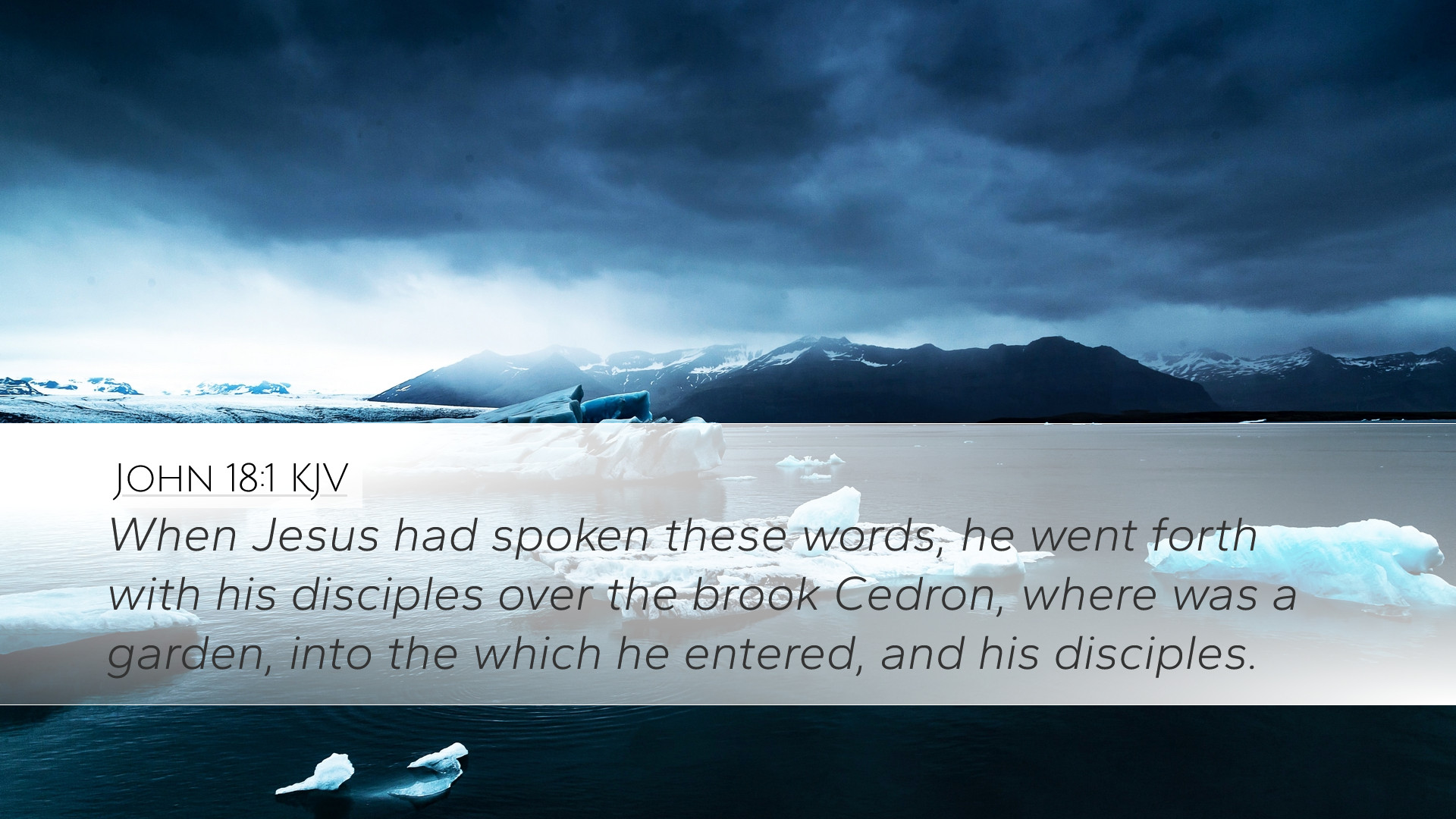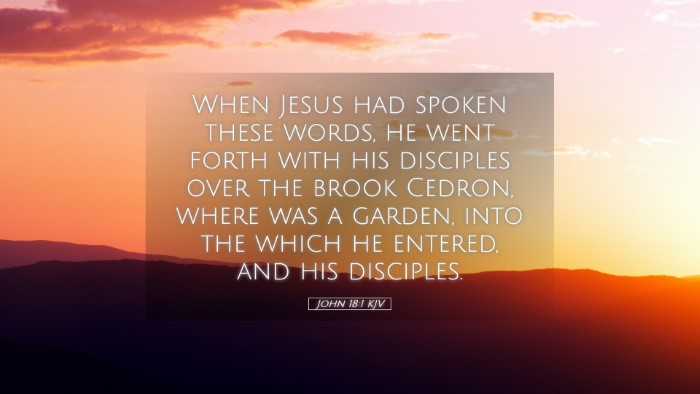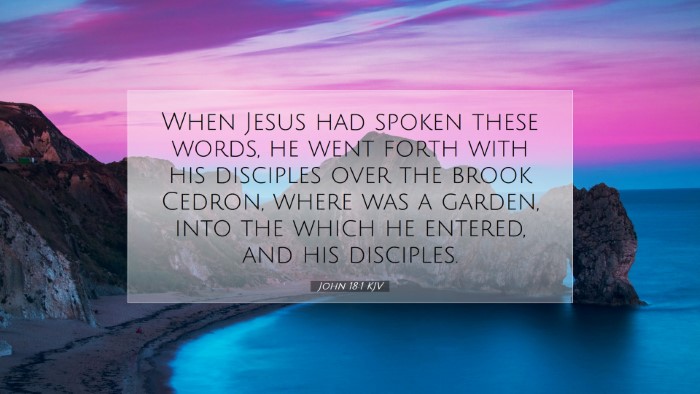Commentary on John 18:1
Verse: "When Jesus had spoken these words, he went forth with his disciples over the brook Cedron, where was a garden, into the which he entered, and his disciples."
Introduction
The account in John 18:1 marks a significant transition as it leads us to the events of Jesus' passion and crucifixion. This verse encapsulates a moment of movement, reflecting both physical and theological transitions. The journey from the upper room to the garden highlights the culmination of His teachings, prayers, and the approaching fulfillment of prophecy.
The Journey Begins
In analyzing this passage, it is important to note that “Jesus had spoken these words” refers back to His lengthy discourse in John 14-17. Matthew Henry emphasizes the importance of context, stating that the teachings of Christ contained in His previous discourse were vital for the disciples as they prepared to face trials. These words also reflect Jesus’ intimate relationship with the Father, underscoring His obedience and purpose.
The Brook Cedron
The brook Cedron, or Kidron, serves as a geographical marker to orient us in the narrative. Albert Barnes points out that this brook was often associated with sorrow and death, having been a site for the disposal of sacrifices. This connection adds a layer of symbolism to this moment, as it evokes the approaching sacrifice that Jesus would undertake. The act of crossing this brook can be viewed as Jesus stepping into the shadow of death, preparing for His atonement.
The Garden of Gethsemane
The garden into which Jesus entered is identified as Gethsemane. Adam Clarke notes that the word 'Gethsemane' means “oil press,” suggesting a place of pressing, anxiety, and emotional strain. In the garden, Jesus would experience deep anguish as He prayed, showcasing His human vulnerability juxtaposed with His divine mission.
Symbolism of the Garden
- Intimacy with the Father: The garden symbolizes a place of communion with God. Jesus frequently withdrew to pray, and this moment exemplifies that desire for connection, particularly during a time of turmoil.
- Preparation for Trials: The garden serves as a preparation ground for Jesus’ impending suffering. Just as Adam faced temptation in a garden, now the second Adam prepares for His trials in a similar space.
- Kairos and Chronos: This transition moment reflects not only the chronological passage from one location to another (chronos) but also captures the divine timing (kairos) of redemptive history.
The Disciples’ Role
Jesus’ disciples accompany Him in this moment, highlighting their crucial role in the unfolding drama. Matthew Henry remarks on the disciples’ presence; they are witnesses to the impending events, albeit unaware of the full weight of what is about to transpire. Their companionship signifies camaraderie in Christ’s trials, though their understanding will soon be tested.
Lessons for Discipleship
- Vigilance in Prayer: The disciples’ failure to stay awake and pray in the garden serves as a cautionary tale for all who follow Christ. This moment invites reflection on the necessity of spiritual vigilance.
- Understanding and Expectation: There is a need for disciples to grasp the gravity of Christ's mission fully. The events that follow in Gethsemane challenge their faith and understanding of the Messiah.
Theological Reflections
John 18:1 can be interpreted through several theological lenses that offer depth to the meaning of the verse.
Christology
This passage highlights the dual nature of Christ—fully divine and fully human. Jesus is portrayed not just as a teacher but as the suffering servant who embraces His fate with resolve, fulfilling the mission laid out in Scripture. The act of crossing into Gethsemane demonstrates His submission to the Father's will, a definitive moment in Christology.
Soteriology
The movement into the garden foreshadows the sacrificial act that will redeem humanity. The agony in the garden, leading to the arrest and trial, sets the stage for the passion narrative, which is central to soteriological studies. It is in this moment that we see the tension between divine purpose and human anguish, reflecting the core of the Gospel message.
Ecclesiology
The presence of the disciples in this passage also leads to reflections on the nature of the Church. Their journey alongside Jesus and His teachings serve as a model for community and vulnerability within the body of Christ. The lessons learned in Gethsemane lay the groundwork for the Church's mission following the resurrection.
Conclusion
In conclusion, John 18:1 serves as a powerful prelude to the deep and transformative events of the Passion. The journey from the upper room to the garden is rich with significance, inviting pastors, students, theologians, and Bible scholars to explore themes of obedience, sacrifice, and community.
As we reflect on this verse, let us stand in awe of Christ's unwavering commitment to His mission, and let the lessons drawn from Gethsemane inspire us to pursue deeper intimacy with God and greater vigilance in our discipleship.


